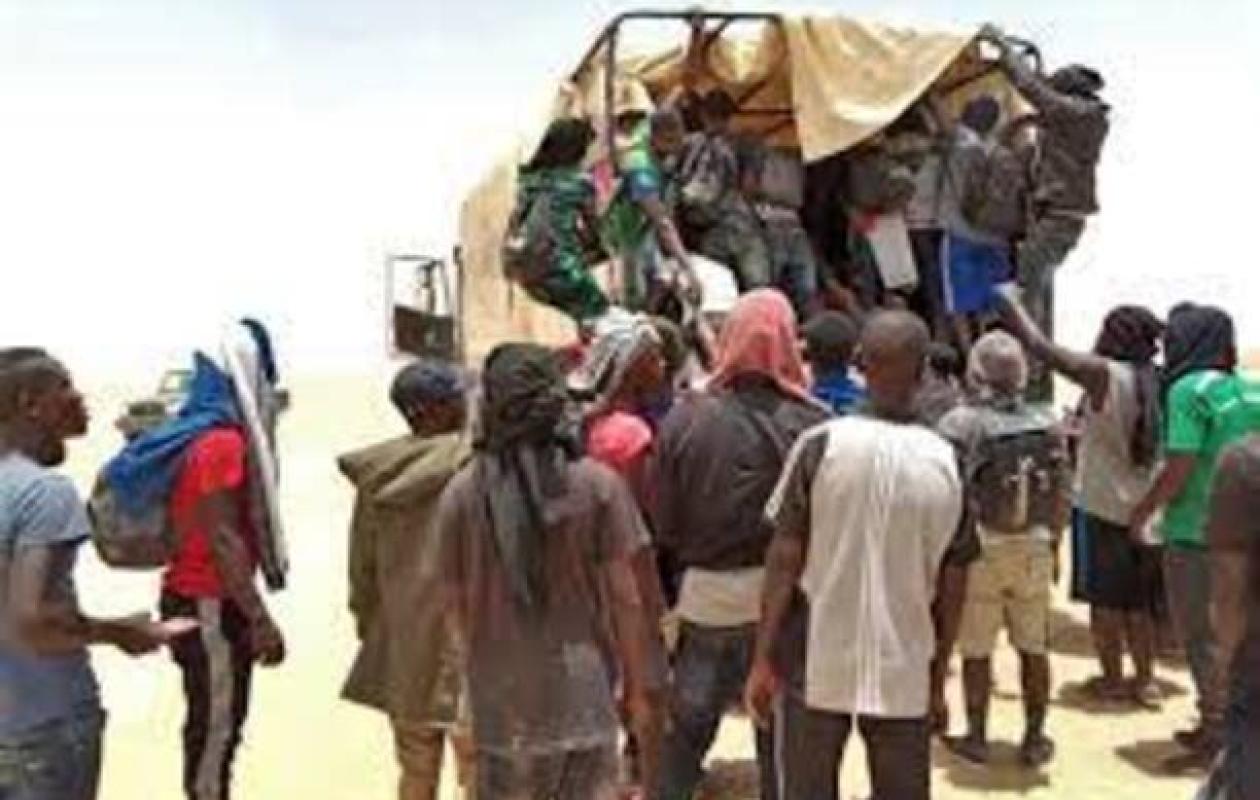
Des Africains expulsés des États-Unis vers le Ghana, abandonnés sans papiers au Togo
West African nationals deported by the United States to Ghana are finding themselves on their own in Togo, where they arrived without identity papers, two of the deportees and their lawyer told AFP.
These forced departures to the African continent constitute the latest episode in the vast expulsion program implemented under the presidency of Donald Trump.
The situation of these nationals was revealed in early September, when Ghanaian President John Mahama announced the agreement reached with Washington to accept deportees from the region.
Since then, eight to ten West African nationals have been forcibly transferred from Ghana to Togo, without going through a border post, and left without passports.
"The situation is terrible," Benjamin, a Nigerian national who uses this pseudonym to protect his identity, told AFP.
He says he is staying in a hotel room with three other deportees, sharing a single bed and living on money sent by their families back in the United States.
A judge ruled in June that he could not be deported to Nigeria, saying he risked his life there because of his past political activities, said Benjamin, who had expected to be released to join his wife and children, who are American citizens.
According to him, agents from the US Immigration and Customs Enforcement (ICE) agency beat him after he refused to board a military plane to an unknown destination, which turned out to be Ghana.
Contacted, the ICE did not immediately respond to AFP's requests.
Up to 28 people have arrived in Ghana so far.
Ghanaian authorities announced the arrival of a first group of 14 deportees in early September. According to American lawyer Meredyth Yoon, a second plane, capable of carrying up to 14 people, has since landed, but the number of passengers on board remains uncertain.
According to lawyers, the first 14 deportees benefited from US court rulings barring any return to their home countries due to the risk of persecution.
But Washington sent them to Ghana through a legal loophole, Yoon told AFP, while Accra made it clear that the people would be returned to their countries of origin.
One of them, a bisexual Gambian, was sent back to his country by Ghanaian authorities. He now lives in hiding, as same-sex relations are criminalized in the conservative country, according to court documents.
Two Togolese nationals were deported at the Togolese border alongside Benjamin. "They were crying, saying 'it's over, it's over,'" he said, adding that they have since gone into hiding.
Benjamin and another deportee, Emmanuel (pseudonym), a Liberian national, claim to have spent more than two weeks under military guard at Dema camp in the town of Bundase, 70 kilometers from Accra, along with nine other deportees, suffering from heat, mosquito bites and limited access to clean water.
According to their testimony, they were then taken to the Aflao border post, near Lomé, the Togolese capital, and then, with the cooperation of the Togolese authorities, transferred to the other side of the border, outside of any official procedure.
"We are living in hiding because we have no identity documents," Emmanuel confided.
The latter fled Liberia's first civil war in the 1990s and was granted asylum in the United States.
Emmanuel and Benjamin both held permanent resident ("green cards") and were married to American citizens.
They were taken into custody by ICE after serving prison sentences for separate fraud-related convictions.
Emmanuel was contesting his deportation in US courts at the time he was sent back, according to his lawyer Meredyth Yoon.
The Office of the United Nations High Commissioner for Human Rights has called on Ghana to stop deportations to Nigeria, Gambia, Togo, Mali, Liberia or any other third country "when there are substantial grounds to believe that individuals could be subjected to torture there."
Asked by AFP, the US State Department indicated that it "will continue to use all appropriate means to remove foreigners who should not be on American soil."
The Togolese and Ghanaian governments have not yet commented on this matter.
Commentaires (2)
Participer à la Discussion
Règles de la communauté :
💡 Astuce : Utilisez des emojis depuis votre téléphone ou le module emoji ci-dessous. Cliquez sur GIF pour ajouter un GIF animé. Collez un lien X/Twitter, TikTok ou Instagram pour l'afficher automatiquement.